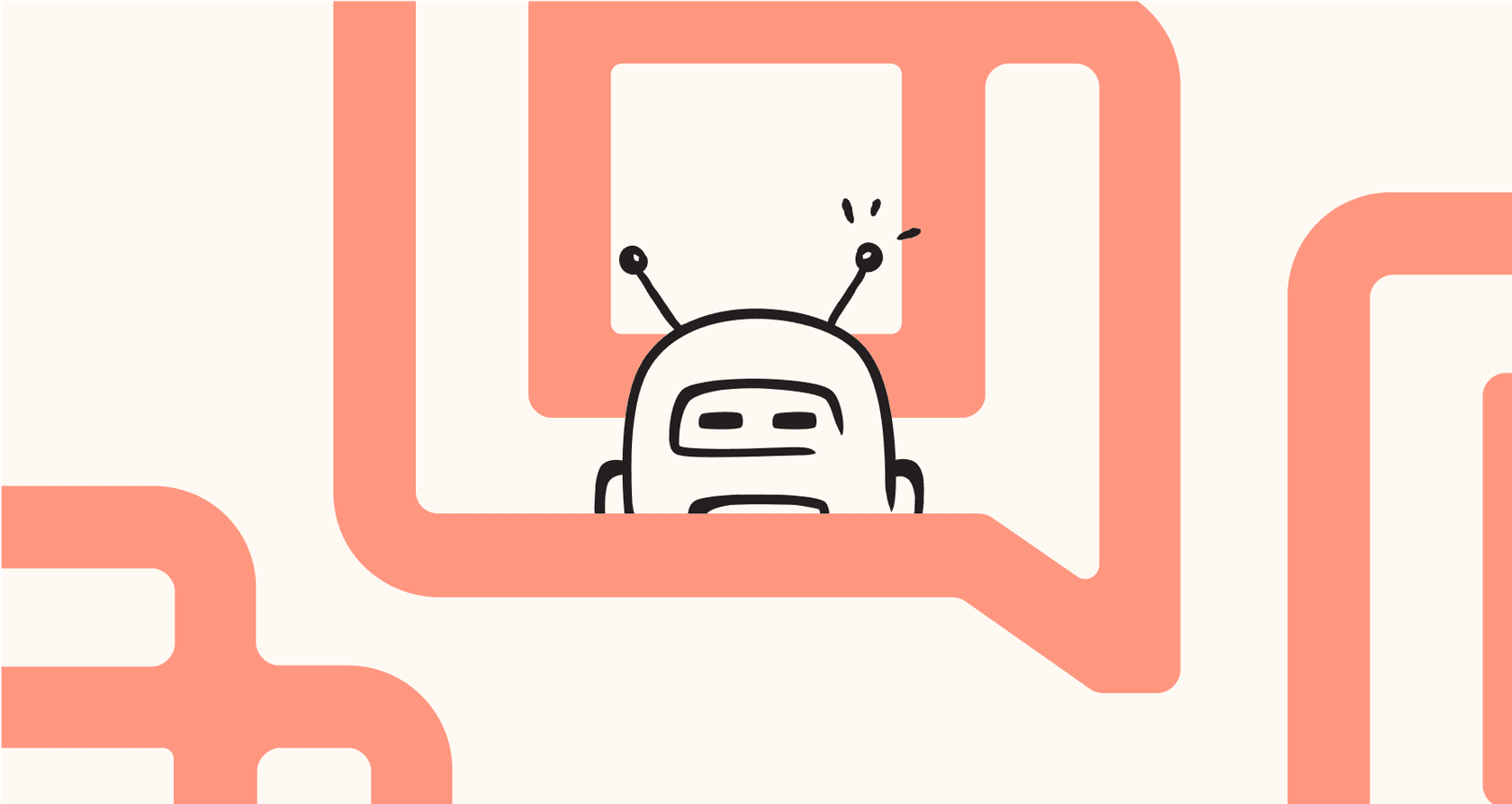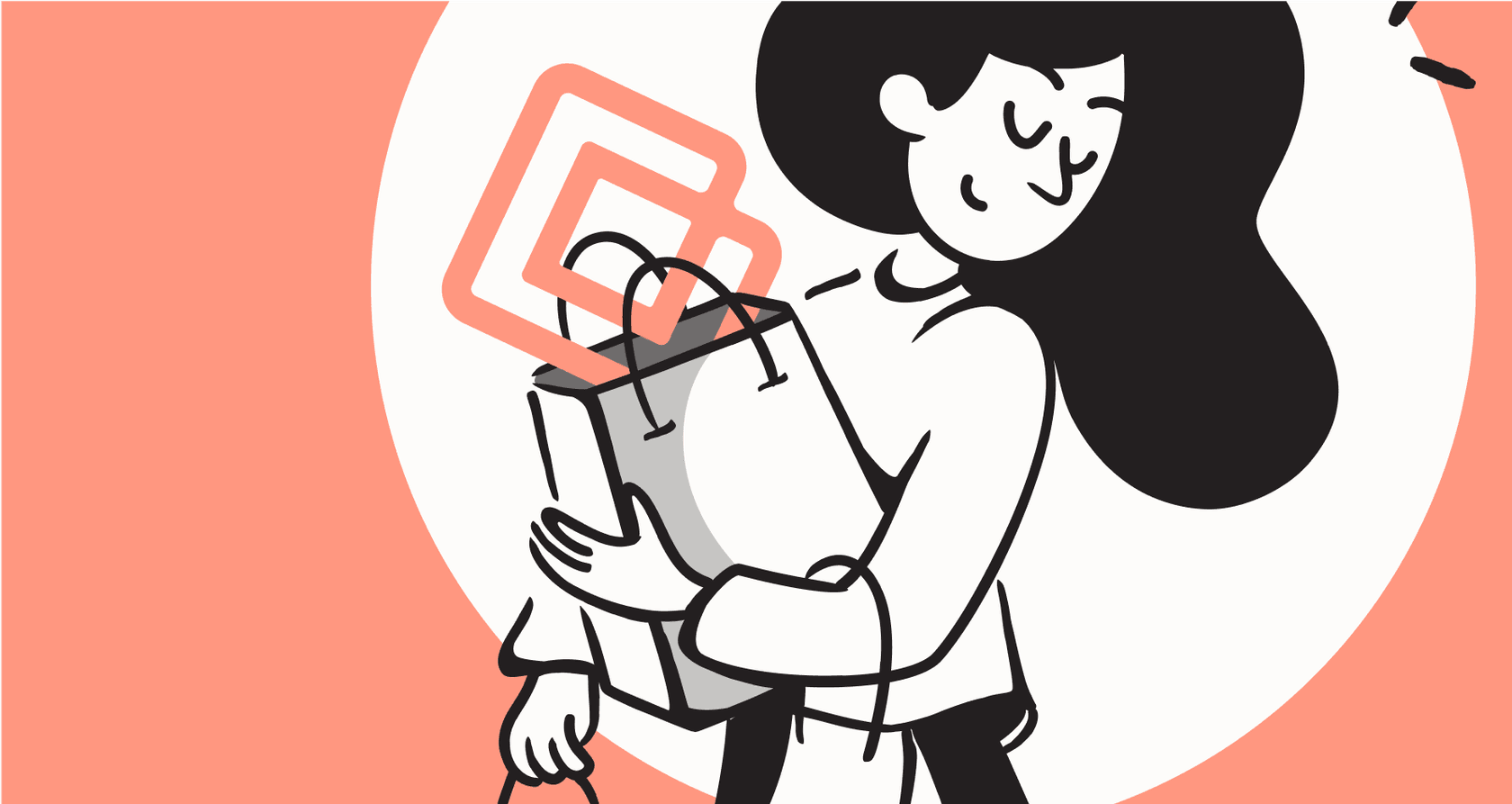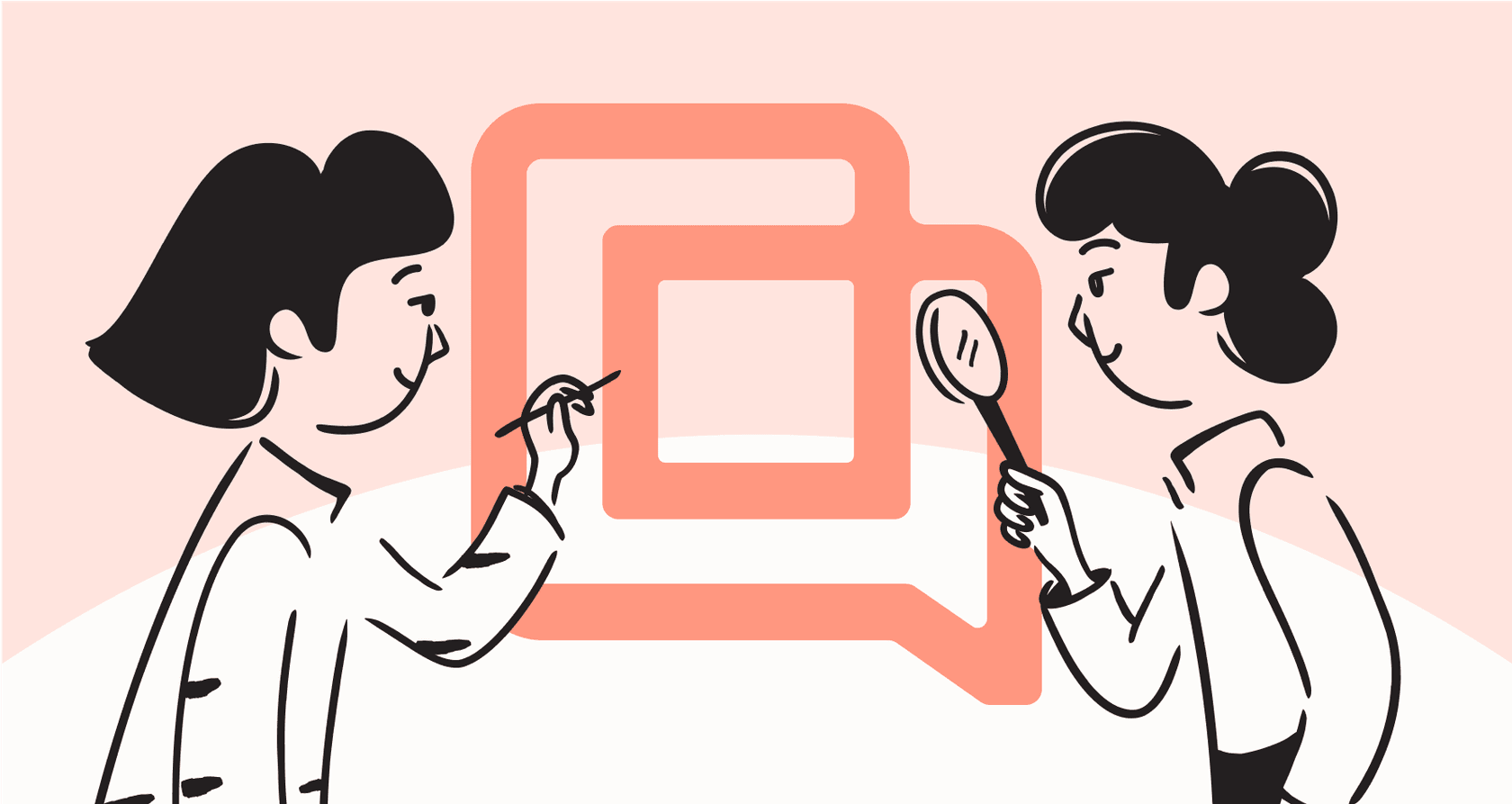A complete guide to Gorgias chat campaigns

Kenneth Pangan

Stanley Nicholas
Last edited January 16, 2026
Expert Verified

If you run an ecommerce brand, you know that proactive chat is one of the closest things you have to a helpful sales associate greeting a customer in a physical store. Instead of a generic "Can I help you?" pop-up, you can engage shoppers with the right message at just the right moment. When it’s done well, this can make a real difference to your bottom line. In fact, Gorgias reports that brands using their chat campaigns see a revenue lift of up to 13%.
That's a number that's hard to ignore. As you explore this feature, it’s a good idea to understand exactly what you're getting. This guide will walk you through everything you need to know about Gorgias chat campaigns, from how they work and how the pricing is structured to some key considerations for scaling.
While Gorgias gives you a strong starting point for proactive chat, you'll see that businesses aiming for specialized, highly scalable automation often choose to add a complementary engine to support their growth.
What are Gorgias chat campaigns?
At their simplest, Gorgias chat campaigns are automated messages that pop up in the chat widget on your website. You can think of them as smart engagement tools, designed to interact with visitors based on who they are, where they are on your site, and what they’re doing.
Their main job is to bring that helpful in-store experience online. Instead of letting a potential customer browse in silence, a chat campaign can spark a conversation, offer a timely discount, or answer a question before it’s even asked. They’re built to be less intrusive than a full-screen pop-up. If a customer replies, the conversation gets routed directly to a human agent, turning an automated nudge into a personal chat.
How Gorgias chat campaigns work: Triggers, types, and features
These campaigns run on a set of rules you define. You pick the conditions, write the message, and Gorgias does the rest. Let’s break down the key parts.
Key triggers and targeting options
The real power of proactive chat is in the targeting. You don’t want to show the same message to everyone. Gorgias lets you trigger campaigns based on a few core conditions:
-
Current URL: This is the most common one. You can target specific product pages, collection pages, your homepage, or, most strategically, the checkout and cart pages to help prevent abandonment.
-
Time spent on page: If someone is lingering on a page for a minute or two, they might be on the fence or have a question. This trigger lets you engage them right when they're deep in thought.
-
Cart value: You can set up campaigns that appear when a customer's cart hits a certain dollar amount. This is perfect for offering free shipping or a small gift to encourage them to complete the purchase.
-
Shopify customer tags: For stores on Shopify, you can target campaigns to specific customer groups you've already created, like "VIP," "repeat-customer," or "first-time-visitor."
-
Exit intent: This trigger tries to catch visitors just as they're about to leave your site, giving you one last chance to convert them with a special offer or a helpful message.
Light campaigns vs. convert campaigns
Gorgias splits its campaign features into two tiers to match different business needs.
-
Light Campaigns: These are the standard version available to everyone on a Gorgias helpdesk plan. They're focused on core triggers, mainly Current URL and Time spent on page. You get a few of these per chat integration, and they're a great place to start.
-
Convert Campaigns: This is the more advanced version, which is available through a Gorgias Convert subscription. It unlocks more powerful targeting using deeper Shopify data, like what's in a customer's cart, their purchase history, and those customer tags we mentioned earlier.
| Feature | Light Campaigns | Convert Campaigns |
|---|---|---|
| Availability | Included in all Gorgias plans | Available via Gorgias Convert add-on |
| Primary Triggers | Current URL, Time spent on page | All Light triggers, plus... |
| Advanced Triggers | N/A | Cart value, purchase history, Shopify customer tags |
| Best For | Essential proactive messaging | Advanced, data-driven engagement |
Common campaign examples
To give you a better idea, here are a few ways you could put these campaigns into action:
-
Product Page Help: A visitor lands on your most technical product page. After 20 seconds, a chat campaign pops up: "This one has a lot of features! Have any questions I can help with?"
-
Stopping Cart Abandonment: A customer has been on the
/cartpage for over two minutes with items in their cart. A campaign appears with a message like, "Psst! Looks like you're ready to go. Use code CHECKOUT10 for 10% off your order." -
Welcoming a VIP: A customer with a "VIP" tag in Shopify visits your site. A campaign immediately welcomes them back: "Welcome back! As a VIP, you get priority support. Just reply here if you need anything."
How the pricing works
Gorgias offers a tiered pricing model that allows you to pay for what you use, making it easier to scale as your engagement grows.
How campaigns fit into your Gorgias plan
A chat campaign only becomes a ticket if a customer actually replies to it. If they see the pop-up and ignore it, you don't use any of your ticket quota.
When a customer does reply, that conversation creates a ticket. That ticket counts against your monthly limit for your Gorgias plan (Starter, Basic, Pro, etc.). Gorgias provides a reliable framework where you only pay for tickets that lead to actual interactions.
The cost of AI agent interactions
If you use Gorgias's own AI Agent to automatically answer a question from a campaign, it’s considered an "automated interaction." This covers useful tasks like tracking an order or processing a return.
According to their pricing page, this provides a clear structure: $1.00 per fully resolved conversation on a monthly plan or $0.90 on an annual plan.
This automated interaction also counts as one helpdesk ticket. This model ensures that you are paying for successful resolutions, which helps in understanding the direct value provided by the AI in handling your support volume.
Key considerations for Gorgias chat campaigns
Gorgias chat campaigns are a great start for proactive engagement. As your business grows, you might find opportunities to further enhance how much you can automate.
Optimizing trigger strategies for proactive support
The available triggers are highly effective for capturing common customer behaviors. While they focus on set conditions like page visits or tags, some teams find that as they scale, they want to add even more nuance to how the AI understands intent. This is where complementary tools can help analyze the details in pre-sales questions or technical issues.
Expanding knowledge sources for higher automation
Gorgias's AI is expertly designed to pull information from your Gorgias help center and your Shopify store data. This is excellent for many standard queries. However, many businesses have knowledge stored in other places too.
Detailed technical specs might be in Confluence, updated policies in a Google Doc, or troubleshooting guides in Notion. While the native Gorgias AI focuses on its core ecosystem, you can easily bridge the gap to these other sources by using integrated add-ons, ensuring your team can resolve even more conversations automatically.
Managing costs as your support volume grows
The usage-based pricing model is designed to scale with your success. As your brand grows and you receive more customer inquiries, your investment in automation grows alongside your results. For teams that prefer a fixed monthly capacity, there are complementary options that can work alongside Gorgias to provide different billing structures.
Get more from your Gorgias chat campaigns with an integrated AI agent
You can maintain your excellent Gorgias setup while adding more power and flexibility. A smart approach is to plug a complementary AI engine directly into your existing Gorgias environment.
This is exactly what eesel AI is built for. It integrates smoothly with Gorgias to enhance the capabilities of your native system.
Unify all your knowledge sources for smarter campaigns
To build on Gorgias's strengths, eesel AI connects to Gorgias and over 100 other knowledge sources your business already uses. You can instantly connect it to Confluence, Google Docs, Notion, and even your historical support tickets.
This means when a customer replies to one of your chat campaigns, the AI can draw from all your company knowledge. It can pull a technical spec from a PDF or a policy detail from a Google Doc to provide a single, complete answer within your Gorgias interface. This naturally increases the number of issues you can resolve automatically.
Go beyond basic triggers with advanced actions
With eesel AI, you can add a fully customizable workflow engine to your Gorgias setup. Using a simple prompt editor, you can define the AI’s exact tone of voice and the specific actions it can perform. Whether you need it to look up order information from a custom backend or automatically tag tickets based on the customer's question, you can set it up in minutes. This provides an additional layer of control to complement Gorgias's pre-set features.
Predictable testing for your campaign strategy
One of the helpful additions eesel AI provides is a simulation mode. Before you let the AI talk to a real customer, you can run it on thousands of your past tickets. This provides a clear forecast of its performance and your potential automation rate. It's a great way to feel even more confident in your Gorgias strategy.
Additionally, eesel AI's pricing plans offer an alternative for teams looking for set monthly capacity with no per-resolution fees. This makes it easy to keep your monthly bill predictable as you scale your support operations.
The final word on Gorgias chat campaigns
Gorgias chat campaigns are an excellent tool for any ecommerce brand looking to succeed with proactive support. They are highly effective at engaging customers, answering simple questions, and driving real sales.
Gorgias is a mature, reliable platform that powers customer service for thousands of companies. By understanding its core features and knowing how to expand its capabilities with complementary tools, you can build a truly world-class support experience. For businesses ready to scale their support with intelligent, centralized knowledge, integrating a dedicated AI platform alongside Gorgias is a great next step.
Ready to unlock the full potential of your proactive support? eesel AI plugs directly into Gorgias to unify your knowledge and automate more conversations with predictable pricing. Start your free trial today.
Frequently asked questions
Gorgias chat campaigns proactively engage visitors with timely messages, offering assistance or discounts at critical moments like on product pages or during checkout. This personalized interaction helps answer questions, resolve doubts, and encourage conversions, potentially increasing revenue by up to 13%.
Light Campaigns are basic, available to all Gorgias plans, and use simpler triggers like current URL and time on page. Convert Campaigns require an extra subscription and unlock advanced targeting based on Shopify data such as cart value, purchase history, and customer tags.
A Gorgias chat campaign only creates a billable ticket if a customer replies to it. Each reply then counts towards your monthly ticket limit, allowing you to manage costs based on active engagement. If Gorgias's AI Agent resolves the conversation, it also provides a convenient per-resolution fee option.
When a customer replies to a Gorgias chat campaign, it creates a new conversation ticket within your Gorgias helpdesk. This ticket is then routed to either a human agent or, if enabled, to Gorgias's AI Agent for an automated response, depending on your setup.
Gorgias chat campaigns work efficiently using triggers and data from your help center and Shopify. To further enhance their ability to handle complex intent or access diverse knowledge sources like internal documents, many teams integrate complementary tools to support more nuanced inquiries.
Native Gorgias AI is highly effective at utilizing your help center and Shopify data. To access additional company knowledge, including documents from Confluence, Google Docs, or Notion, you can integrate a complementary AI solution like eesel AI. This allows the AI to unify information from over 100 sources within your Gorgias workflow.
While Gorgias is optimized for live customer engagement, integrating a platform like eesel AI allows you to test AI responses against thousands of past tickets. This provides clear forecasts of performance and automation rates, helping you refine your strategy confidently before engaging live customers.
Share this post

Article by
Kenneth Pangan
Writer and marketer for over ten years, Kenneth Pangan splits his time between history, politics, and art with plenty of interruptions from his dogs demanding attention.




